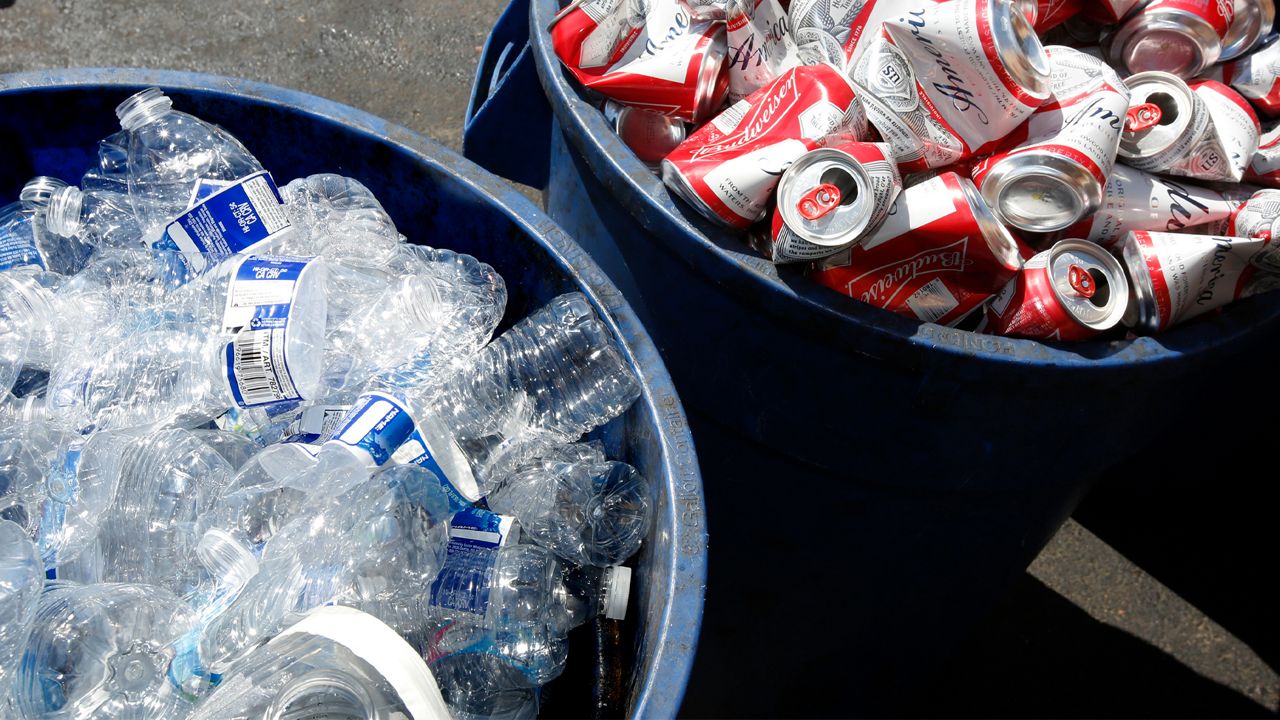LOS ANGELES — Los Angeles Sanitation is changing its policy about which plastics can be thrown in the blue recycling bin. Under the New Blue program announced Tuesday on X, the social media platform formerly known as Twitter, many plastics should now be disposed of in the black trash bins.
While clean and empty plastics marked with the numbers 1, 2 and 5 are still allowed in the blue bin, plastics marked with the numbers 3, 4, 6 and 7 are no longer allowed because they cannot be recycled, even if they include a recycling symbol.
Following are items that are no longer allowed in the blue bins:
- Plastic 3 (polyvinyl chloride), including clear food wrapping, teething rings and kids and pet toys
- Plastic 4 (low-density polyethylene), including shrink wrap, dry-cleaner bags, plastic shopping bags, squeezable bottles and bread packaging bags
- Plastic 6 (polystyrene), including disposable cups, plastic utensils, food containers and foam packaging material
- Plastic 7 (polycarbonate), including water bottles, food containers, eyewear and electronic devices
- Plastic 7 (polylactic acid), including packaging materials, disposable cutlery and food containers
- Plastic 7 (polyurethane), including adhesives, foam cushions and sealants/flexible coatings
- Plastic 7 (acrylic), including display cases and home décor
- Plastic 7 (biodegradable/composable plastics), including packaging, cutlery and food containers
Following are items that can still be recycled through the blue bin:
- Plastic 1 (polyethylene terephthalate, or PET), including soda and water bottles with lids and caps on
- Plastic 2 (high-density polyethylene, or HDPE), including laundry soap, lotion, shampoo bottles and milk jugs
- Plastic 5 (polypropylene, or PP), including retail food containers for yogurt, butter and margarine (but not black microwave meal trays)
Encouraging people to “think reusable, not disposable,” LASAN is asking that Angelenos “always bring your own reusable cup and bag.”
Operating the largest curbside recycling program in the U.S., LA Sanitation collects recycling and trash from 750,000 households and currently diverts about 76.4% of its waste from landfills, according to its website. By 2050, as part of the city’s Green New Deal, it has set a goal of no longer sending any trash to landfills.



